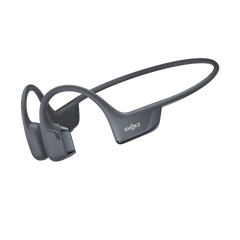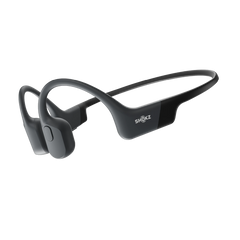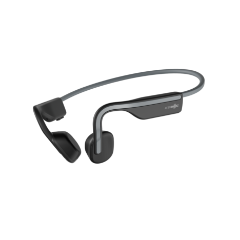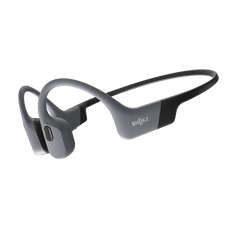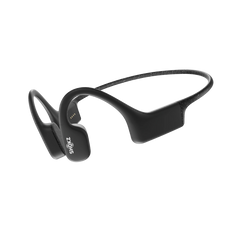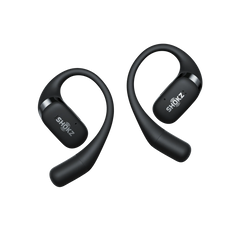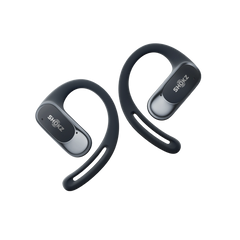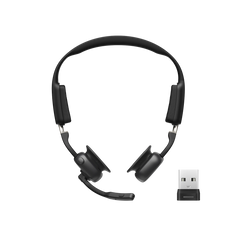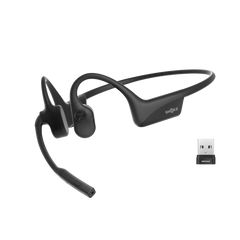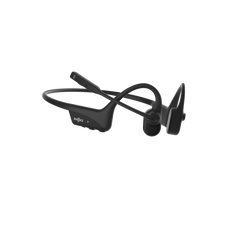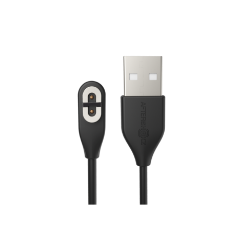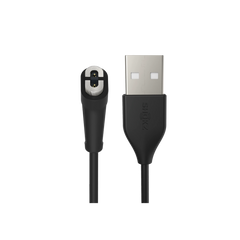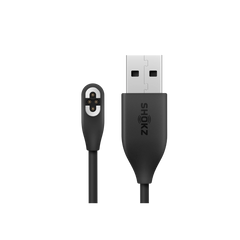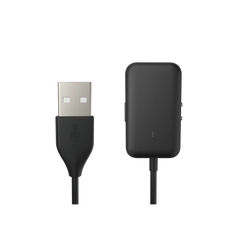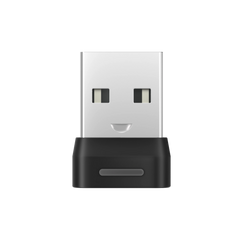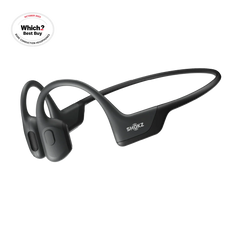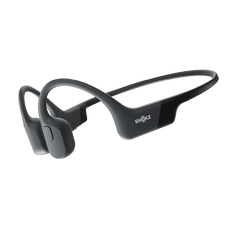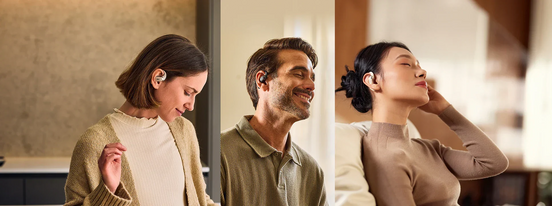Do you ever wonder, "Why is my ear ringing all of a sudden?" Ear ringing, also known as Tinnitus, often happens after extended use of headphones or exposure to loud music.
Regular headphone users commonly experience this annoying sensation, especially after long listening sessions. Fortunately, practical solutions exist. This post explores the causes of Tinnitus and the connection with headphone use. It also introduces the use of open-ear headphones to prevent ear ringing.
By making informed choices and following simple habits, you can significantly reduce discomfort, protect your hearing, and enjoy your music without worrying about ear ringing.
What is Ringing in the Ears (Tinnitus), and Why Does It Happen During Music Sessions?
Understanding Tinnitus and Its Causes
Tinnitus describes the sensation of hearing ringing, buzzing, or humming sounds without an external source. This happens when loud sounds damage tiny hair cells in your inner ear.
Normally, these hair cells send sound signals to your brain. However, loud noises or prolonged headphone use can damage or overstimulate these cells and cause them to malfunction.
As a result, you perceive ringing or buzzing noises. Scientific studies suggest that consistent exposure to loud sounds above 85 decibels significantly increases Tinnitus risk.
The Impact of Loud Music on Your Ears
Many famous musicians suffer from Tinnitus due to prolonged exposure to loud music. Eric Clapton and Pete Townshend openly discuss their struggles with Tinnitus to highlight the risks associated with continuous loud music exposure.
Their experiences emphasise the importance of protecting your ears, even when enjoying your favourite songs.
The Connection Between Headphones and Ringing in Ears
Different headphones impact ear health differently. In-ear models block the ear canal. They increase pressure and trap moisture, which leads to discomfort and ringing.
Over-ear models can similarly trap heat and cause discomfort. However, open-ear headphones allow airflow, reduce ear pressure, and significantly lower the risk of tinnitus. Audiologists strongly recommend open-ear designs for prolonged listening sessions.
|
Headphone Type |
Ear Pressure |
Airflow |
Tinnitus Risk |
|
In-Ear |
High |
Low |
High |
|
Over-Ear |
Medium |
Medium |
Moderate |
|
Open-Ear |
Low |
High |
Low |
Choosing the Right Headphones to Minimise Ringing in Ears
Why Open-Ear Headphones Are the Best Choice
Open-ear headphones sit comfortably around your ears and promote natural airflow. This design reduces pressure buildup, prevents sweating, and stops heat from being trapped.
By reducing these factors, open-ear headphones actively lower your risk of ear ringing. They also provide a more comfortable listening experience, particularly beneficial for extended sessions or if you already experience ear discomfort.
Differences Between Open-Ear and In-Ear Headphones
While popular, in-ear headphones can create a sealed environment that increases ear fatigue and tinnitus risk. Their tight seal intensifies internal pressure and limits ventilation, worsening ear discomfort.
Open-ear headphones eliminate these issues by offering better comfort and ventilation despite allowing more sound leakage. Many users prefer these models' health benefits and comfort over the sound isolation of in-ear headphones.
Tips for Finding the Best Open-Ear Headphones
When shopping for open-ear headphones, focus on key features:
-
High-quality sound clarity
-
Comfortable and lightweight design
-
Durable and sweat-resistant materials
-
Positive user feedback, especially from those prone to ear discomfort
Checking reviews from users experiencing Tinnitus can guide you toward effective models for reducing ear ringing.
Effective Ways to Prevent Ringing in Ears During Long Listening Sessions
Lowering the Volume and Taking Regular Breaks
Audiologists recommend the 60/60 rule: listen at no more than 60% volume for no longer than 60 minutes without breaks.
Loud music overstimulates the auditory nerves and may cause Tinnitus. To follow this rule easily, use smartphone apps or headphones with built-in volume limits and reminders.
Creating a Listening Schedule to Avoid Overstimulation
Implement a structured listening schedule to protect your ears:
-
9:00 AM–9:50 AM: Listen at moderate volume
-
10-minute break
-
10:00 AM–10:50 AM: Resume listening
-
Continue with hourly intervals and breaks
One user who adopted this routine saw a noticeable reduction in Tinnitus after just two weeks. His scheduled listening routine highlights the effectiveness of structured listening habits.
Other Tips for Maintaining Healthy Ears and Preventing Tinnitus
Regular Ear Care and Hygiene Practices
Avoid common ear care myths, such as using cotton swabs deep inside your ear canal.
Audiologists warn that this practice pushes earwax deeper and worsens blockages. Instead, use ear-cleaning solutions or gently clean the outer ears with soft tissues.
Ear Care Checklist:
-
Clean headphones regularly
-
Check and manage earwax buildup
-
Avoid prolonged exposure to loud noises
Staying Hydrated and Managing Stress Levels
Hydration significantly impacts ear health, and dehydration can exacerbate Tinnitus. Drink water infused with fruits to make hydration enjoyable.
Stress management also helps, as high-stress levels intensify Tinnitus symptoms. Techniques like yoga, meditation, and regular exercise can effectively manage stress and improve ear health.

Enjoy Tinnitus-Free, Comfortable Listening with the OpenFit Series by Shokz
Shokz OpenFit Air
Shokz OpenFit Air headphones offer a safer listening experience, especially for those concerned about ear ringing. The unique open-ear design prevents pressure buildup and improves airflow around the ear canal.
By reducing stress on the inner ear, OpenFit Air helps lower the risk of tinnitus and ear discomfort, allowing listeners to enjoy their favourite music safely at comfortable volumes.
Shokz OpenFit
Through innovative open-ear construction, Shokz OpenFit headphones protect your ears from ringing and discomfort. Unlike traditional headphones, OpenFit avoids direct insertion into your ear canal and minimises pressure and heat buildup.
This design significantly reduces tinnitus risk. This feature makes OpenFit ideal for extended music sessions and daily audio use without compromising ear health.
Upgrade to Open Ear Headphones for Better Comfort, Ear Health, and Pain-Free Listening
Are you tired of dealing with ringing in your ears? Visit Shokz UK today and switch to open-ear headphones like the Shokz OpenFit or OpenFit Air for all-day comfort, improved ear health, and a seamless listening experience.
FAQ Section
Q: Can open-ear headphones prevent Tinnitus?
A: Open-ear headphones reduce ear canal pressure and improve ventilation, significantly lowering Tinnitus risks.
Q: Is occasional ear ringing normal?
A: Occasional ear ringing after loud music is common, but frequent ringing may indicate potential damage and should be checked by a professional.
Q: What volume level is safe for listening to music?
A: Keep the volume below 60% and limit continuous listening to 60-minute sessions to avoid hearing damage.

